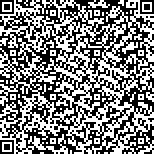| 本文已被:浏览 56次 下载 15次 |

码上扫一扫! |
|
|
| 失眠伴焦虑患者中医证候及焦虑程度的临床研究 |
|
李娜1,2, 王尔玉1,2, 单贝贝1,2, 刘佳玮1,2, 谢颖桢1
|
|
1.北京中医药大学东直门医院, 北京 100700;2.北京中医药大学, 北京 100020
|
|
| 摘要: |
| [目的] 探究不同焦虑程度如何影响失眠患者的心率变异性和睡眠质量及相关性,以期对失眠进行预防、干预以及改善预后,更好地指导临床。[方法] 以2021年9月—2023年12月就诊于北京中医药大学东直门医院脑病门诊的282例失眠患者为研究对象,采集其一般资料、临床症状、匹兹堡睡眠指数量表评分、汉密尔顿焦虑量表(HAMA)评分、汉密尔顿抑郁量表评分、压力知觉量表评分、心率变异性等指标。根据HAMA评分结果,HAMA<7分的42例患者为无焦虑组,14~20分的106例患者为轻度焦虑组,21~28分的106例患者为中度焦虑组,>29分的34例患者为重度焦虑组,共282例,比较不同组间焦虑及抑郁指标、心率变异性指标的差异。[结果] 在生活习惯与性格特点对焦虑程度的影响方面,有生活应激事件过多、既往经常熬夜、吃得快咀嚼不充分、生闷气、思虑过度、承担过多情况的患者焦虑程度会加重(P<0.01或P<0.05);抑郁、压力情况随焦虑程度加重(P<0.01或P<0.05);随着焦虑程度增加,RR间期标准差下降,睡眠质量下降(P<0.01或P<0.05)。通过对失眠伴焦虑患者常见症状如多思善虑、疲乏无力、善太息等进行聚类分析,初步拟为3个证候:肝郁脾虚、心肝火旺、心胆气虚。[结论] 焦虑程度高,睡眠质量差;“烦劳则张”是发病的基本原因,阳气不精、精神失养是其病理结果。失眠伴焦虑可初步拟为3个证候:肝郁脾虚、心肝火旺、心胆气虚。在临床治疗时,可以适当使用温阳法来治疗焦虑、失眠。 |
| 关键词: 失眠 焦虑程度 睡眠质量 心率变异性 |
| DOI:10.11656/j.issn.1672-1519.2025.01.05 |
| 分类号:R256.23 |
| 基金项目:首都卫生发展科研专项重点攻关项目(首发2020-1-2011)。 |
|
| Clinical study on traditional Chinese medicine syndrome and anxiety levels in insomnia patients with anxiety |
|
LI Na1,2, WANG Eryu1,2, SHAN Beibei1,2, LIU Jiawei1,2, XIE Yingzhen1
|
|
1.Dongzhimen Hospital, Beijing University of Chinese Medicine, Beijing 100700, China;2.Beijing University of Chinese Medicine, Beijing 100020, China
|
| Abstract: |
| [Objective] To explore how different levels of anxiety affect the heart rate variability and sleep quality of patients with insomnia,so as to prevent,intervene and improve the prognosis of insomnia,and better guide clinical practice. [Methods] General information,clinical symptoms,Pittsburgh sleep index scale,Hamilton anxiety scale(HAMA),Hamilton depression scale and stress perception scale,heart rate variability and other indicators were collected from 282 patients with insomnia admitted to Beijing Dongzhimen Hospital from September 2021 to December 2023. According to the results of hamilton anxiety scale,42 patients with HAMA<7 were non anxiety group;the 106 patients with 14 to 20 scores were in the mild anxiety group;the 106 patients with 21 to 28 scores were in the moderate anxiety group and 34 patients with>29 scores were in the severe anxiety group,a total of 282 patients. The differences of anxiety and depression indexes and heart rate variability indexes among different groups were compared. [Results] In terms of the influence of life habit and personality characteristics on anxiety degree,patients with excessive life stress events,frequent staying up late in the past,inadequate fast chewing,sulking,excessive thinking and excessive burden would increase anxiety degree(P<0.01,P<0.05);depression and stress would increase with anxiety degree(P<0.01,P<0.05);with anxiety degree increasing,standard deviation of NN intervals(SDNN) decreased and sleep quality decreased(P<0.01,P<0.05). Through cluster analysis of the common symptoms of insomnia patients with anxiety,such as thinking and caring,fatigue and weakness,and being good at rest,it is preliminarily divided into three syndromes:liver depression and spleen deficiency,heart and liver fire hyperactivity,and heart and gallbladder qi deficiency. [Conclusion] High degree of anxiety,poor sleep quality,“tiredness leads to tension” is the basic cause of the disease,yang qi is not refined,mental loss of nourishment are the pathological results. Insomnia with anxiety can be preliminarily divided into three syndromes:liver depression and spleen deficiency,heart and liver fire,heart and gallbladder qi deficiency. In clinical treatment,yang warming therapy can be appropriately used to treat anxiety and insomnia. |
| Key words: insomnia anxiety level sleep quality heart rate variability |
